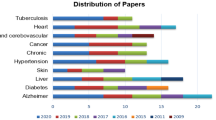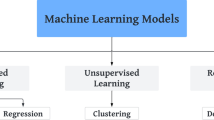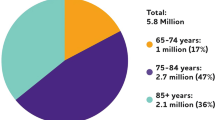Abstract
Alzheimer’s disease (AD) sufferers can benefit from early detection and diagnosis so that protective treatments can be taken before permanent brain impairment develops. Magnetic resonance imaging (MRI)-detected lesion sites in AD patients exhibit significant heterogeneity and these characteristics are spread throughout the imaging space, according to cross-sectional imaging studies of Alzheimer's disease. Because conventional Deep Learning (DL) methods can’t generate enough long-distance correlations in the characteristic space, adaptive fine-tuned deep resnet-50 with attention mechanism (AFDR-AM) is introduced in this research for the early identification of AD. The input MRI data is de-noised using a wavelet thresholding approach, and the contrast is enhanced using Improved Color Histogram Equalization (ICHE). Image recognition and classification characteristics are extracted at the feature extraction phase using a Gabor Filter Bank (GFB). To narrow down a big list of traits, the Artificial Bee Colony Optimization (ABCO) technique can be used to pick the most useful ones and get rid of the rest. Measures of accuracy, precision, recall, f1-score, specificity, and MSE are used to evaluate the effectiveness of the suggested strategy. Comprehensive experiments reveal that our approach achieved the best performance compared to other approaches.












Similar content being viewed by others
Data availability
The dataset generated and analyzed during the current study are available from the corresponding author on reasonable request.
References
Wen J, Thibeau-Sutre E, Diaz-Melo M, Samper-González J, Routier A, Bottani S, Dormont D, Durrleman S, Burgos N, Colliot O, Alzheimer’s disease Neuroimaging Initiative. Convolutional neural networks for classification of Alzheimer’s disease: overview and reproducible evaluation. Med Image Anal. 2020;63:101694.
Li H, Habes M, Wolk DA, Fan Y, Initiative ADN. A deep learning model for early prediction of Alzheimer’s disease dementia based on hippocampal magnetic resonance imaging data. Alzheim Dement. 2019;15(8):1059–70.
Irwin MR, Vitiello MV. Implications of sleep disturbance and inflammation for Alzheimer’s disease dementia. Lancet Neurol. 2019;18(3):296–306.
Puente-Castro A, Fernandez-Blanco E, Pazos A, Munteanu CR. Automatic assessment of Alzheimer’s disease diagnosis based on deep learning techniques. Comput Biol Med. 2020;120:103764.
Khan NM, Abraham N, Hon M. Transfer learning with intelligent training data selection for prediction of Alzheimer’s disease. IEEE Access. 2019;7:72726–35.
Liu G, Tian L, Zhou W. Patient-independent seizure detection based on channel-perturbation convolutional neural network and bidirectional long short-term memory. Int J Neural Syst. 2022;32(06):2150051.
Park C, Ha J, Park S. Prediction of Alzheimer’s disease based on the deep neural network by integrating gene expression and DNA methylation dataset. Expert Syst Appl. 2020;140:112873.
Kruthika KR, Maheshappa HD, Initiative ADN. Multistage classifier-based approach for Alzheimer’s disease prediction and retrieval. Inf Med Unlocked. 2019;14:34–42.
Bi X, Li S, Xiao B, Li Y, Wang G, Ma X. Computer-aided Alzheimer’s disease diagnosis by unsupervised deep learning technology. Neurocomputing. 2020;392:296–304.
Parisot S, Ktena SI, Ferrante E, Lee M, Guerrero R, Glocker B, Rueckert D. Disease prediction using graph convolutional networks: application to autism spectrum disorder and Alzheimer’s disease. Med Image Anal. 2018;48:117–30.
Eyigoz E, Mathur S, Santamaria M, Cecchi G, Naylor M. Linguistic markers predict the onset of Alzheimer’s disease. EClinicalMedicine. 2020;28:100583.
Abrol A, Bhattarai M, Fedorov A, Du Y, Plis S, Calhoun V, Alzheimer’s disease Neuroimaging Initiative. Deep residual learning for neuroimaging: an application to predict progression to Alzheimer’s disease. J Neurosci Methods. 2020;339:108701.
Duc NT, Ryu S, Qureshi MNI, Choi M, Lee KH, Lee B. 3D-deep learning-based automatic diagnosis of Alzheimer’s disease with joint MMSE prediction using resting-state fMRI. Neuroinformatics. 2020;18(1):71–86.
Leonenko G, Sims R, Shoai M, Frizzati A, Bossù P, Spalletta G, Fox NC, Williams J, GERAD consortium, Hardy J, Escott-Price V. Polygenic risk and hazard scores for Alzheimer’s disease prediction. Ann Clin Transl Neurol. 2019;6(3):456–65.
Morgan AR, Touchard S, Leckey C, O’Hagan C, Nevado-Holgado AJ, Barkhof F, Bertram L, Blin O, Bos I, Dobricic V, Engelborghs S. Inflammatory biomarkers in Alzheimer’s disease plasma. Alzheim Dement. 2019;15(6):776–87.
Albright J, Initiative ADN. Forecasting the progression of Alzheimer’s disease using neural networks and a novel preprocessing algorithm. Alzheim Dementia: Transl Res Clin Intervent. 2019;5:483–91.
Karikari TK, Pascoal TA, Ashton NJ, Janelidze S, Benedet AL, Rodriguez JL, Chamoun M, Savard M, Kang MS, Therriault J, Schöll M. Blood phosphorylated tau 181 as a biomarker for Alzheimer’s disease: a diagnostic performance and prediction modeling study using data from four prospective cohorts. Lancet Neurol. 2020;19(5):422–33.
Jia L, Zhu M, Kong C, Pang Y, Zhang H, Qiu Q, Wei C, Tang Y, Wang Q, Li Y, Li T. Blood neuro-exosomal synaptic proteins predict Alzheimer’s disease at the asymptomatic stage. Alzheim Dement. 2021;17(1):49–60.
Galasko D, Xiao M, Xu D, Smirnov D, Salmon DP, Dewit N, Vanbrabant J, Jacobs D, Vanderstichele H, Vanmechelen E, Worley P. Synaptic biomarkers in CSF aid in the diagnosis, correlate with cognition, and predict progression in MCI and Alzheimer’s disease. Alzheim Dementia: Transl Res Clin Intervent. 2019;5:871–82.
Mehmood A, Yang S, Feng Z, Wang M, Ahmad AS, Khan R, Maqsood M, Yaqub M. A transfer learning approach for early diagnosis of Alzheimer’s disease on MRI images. Neuroscience. 2021;460:43–52.
Babu HVJJ, Saranya R, Yogaraja CA, Rajalakshmi S, Manimegalai L. Effective segmentation of brain tumors through the GOA algorithm using deep learning. In: 2023 2nd international conference on applied artificial intelligence and computing (ICAAIC), Salem, India; 2023. pp. 389–395.
Murugan S, Venkatesan C, Sumithra MG, Gao XZ, Elakkiya B, Akila M, Manoharan S. DEMENT: a deep learning model for early diagnosis of Alzheimer’s diseases and dementia from MR images. IEEE Access. 2021;9:90319–29.
Shenbagarajan A, Shenbagalakshmi G, Thavasi S, Venkatesh R. MRI brain tumor detection using deep learning and machine learning approaches. Meas Sens. 2024;2024:31.
Hong X, Lin R, Yang C, Zeng N, Cai C, Gou J, Yang J. Predicting Alzheimer’s disease using LSTM. IEEE Access. 2019;7:80893–901.
Nguyen M, He T, An L, Alexander DC, Feng J, Yeo BT, Initiative ADN. Predicting Alzheimer’s disease progression using deep recurrent neural networks. Neuroimage. 2020;222:117203.
Neelaveni J, Devasana MG. Alzheimer's disease prediction using machine learning algorithms. In: 2020 6th International conference on advanced computing and communication systems (ICACCS). IEEE; 2020. pp. 101–104.
Bi X, Liu W, Liu H, Shang Q. Artificial intelligence-based MRI images for brain in prediction of alzheimer’s disease. J Healthcare Eng. 2021;2021:1–7.
Acknowledgements
The authors acknowledged the Ramco Institute of Technology, Rajapalayam, TN, India and Mepco Schlenk Engineering College, Sivakasi, Virudhunagar, Tamilnadu for supporting the research work by providing the facilities.
Funding
No funding received for this research.
Author information
Authors and Affiliations
Contributions
This research work was made possible by the collaboration and contributions of all authors.
Corresponding author
Ethics declarations
Conflict of interest
No conflict of interest.
Additional information
Publisher's Note
Springer Nature remains neutral with regard to jurisdictional claims in published maps and institutional affiliations.
“This article is part of the topical collection “Advances in Computational Approaches for Image Processing, Wireless Networks, Cloud Applications and Network Security” guest edited by P. Raviraj, Maode Ma and Roopashree H R”.
Rights and permissions
Springer Nature or its licensor (e.g. a society or other partner) holds exclusive rights to this article under a publishing agreement with the author(s) or other rightsholder(s); author self-archiving of the accepted manuscript version of this article is solely governed by the terms of such publishing agreement and applicable law.
About this article
Cite this article
Venkatesh, R., Anantharajan, S., Gunasekaran, S. et al. Prediction of Alzheimer’s Disease Using Adaptive Fine-Tuned Deep Resnet-50 with Attention Mechanism. SN COMPUT. SCI. 5, 392 (2024). https://doi.org/10.1007/s42979-024-02752-1
Received:
Accepted:
Published:
DOI: https://doi.org/10.1007/s42979-024-02752-1




